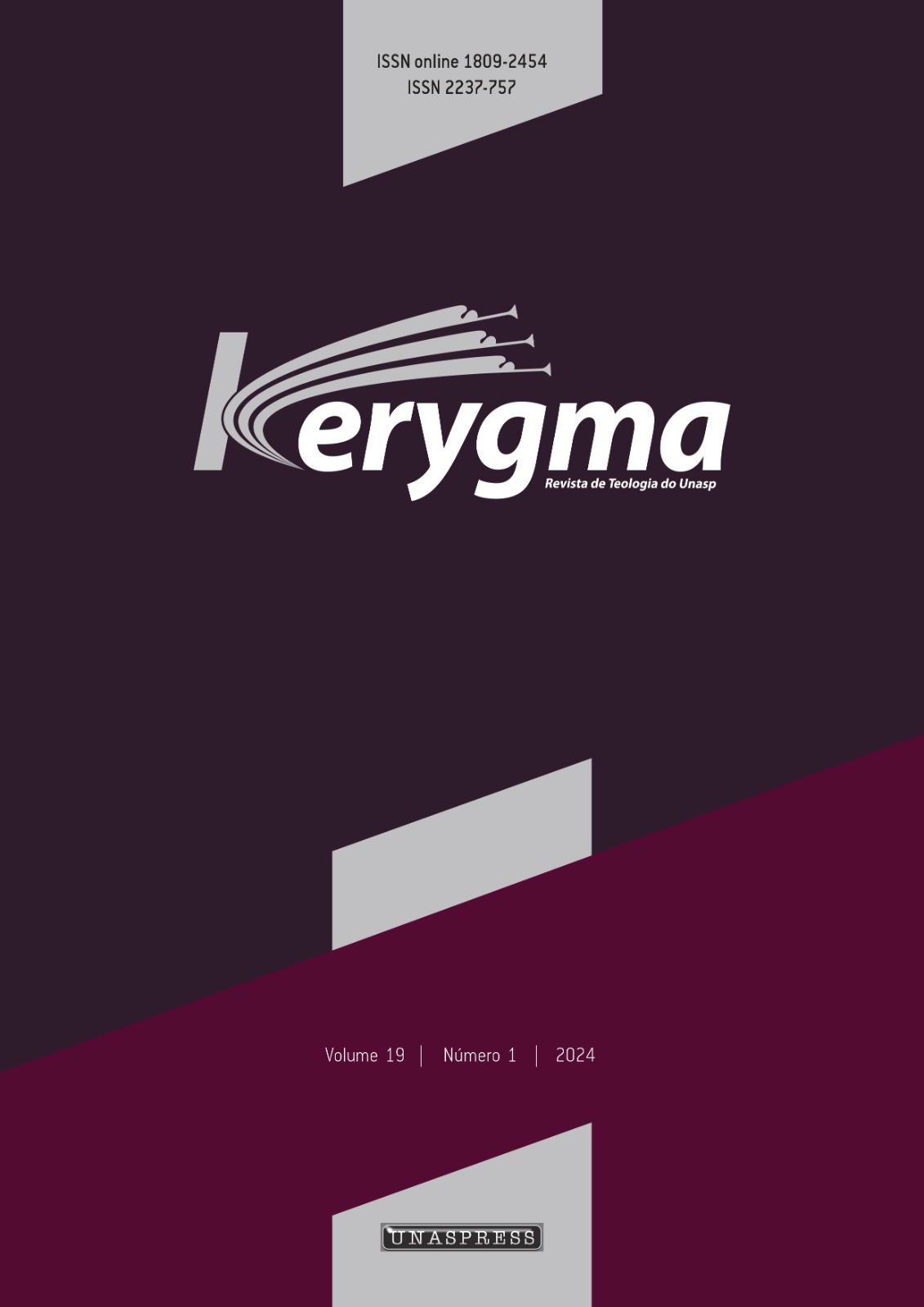Educational principles of ellen gould white in contemporary teaching and learning practices
DOI:
https://doi.org/10.19141/1809-2454.kerygma.v19.n1.pe1628Keywords:
Educational Principles, Ellen G. White, Content AnalysisAbstract
The present article aims to analyze the educational principles advocated by the author Ellen White in the book Education (2013), focusing specifically on three dimensions (neuroplasticity, personalized teaching, and holistic education) considered fundamental for 21st-century pedagogy. The aim is to analyze the possibility of convergences and divergences between White's educational principles and the dimensions established by the authors Kilgour and Christian (2017) in the literature. The research is theoretical and qualitative in nature and uses Bardin's content analysis (2011) for investigation. It was found that the concepts of neuroplasticity, personalization of teaching and comprehensive education are included in the writings left by the researched author. In the work Education (2013), there is advice involving these areas, even if there are differences in the terms used in the present scenario. It is noted that White's educational principles are like the educational trends of the 21st century.
Downloads
References
ANDRADE, D.; MONTEIRO, M. Educação híbrida: abordagens práticas no Brasil. Revista Eletrônica Científica Ensino Interdisciplinar, v. 5, n. 14, p. 250-264, 2019. Disponível em: https://periodicos.apps.uern.br/index.php/RECEI/article/view/1676. Acesso em: 22 out. 2024.
BARDIN, L. Análise de Conteúdo. Lisboa: Edições 70, 2011.
BORTOLI, B.; TERUYA, T. Neurociência e educação: os percalços e possibilidades de um caminho em construção. Imagens da Educação, v. 7, n. 1, p. 70-77, 2017. Disponível em: https://doi.org/10.4025/imagenseduc.v7i1.32171. Acesso em: 22 out. 2024.
CAMPINAS. O manifesto dos pioneiros da educação nova (1932). Revista HISTEDBR On-line, n. especial, p. 188–204, 2006. Disponível em: https://edisciplinas.usp.br/pluginfile.php/1044145/mod_resource/content/1/3.Manifesto%20dos%20Pioneiros%20da%20Educa%C3%A7%C3%A3o.pdf. Acesso em: 19 dez. 2022.
CARVALHO, F. Neurociências e educação: uma articulação necessária na formação docente. Trabalhos em Educação e Saúde, v. 8, n. 3, p. 537-550, 2010 Disponível em: https://www.tes.epsjv.fiocruz.br/index.php/tes/article/view/1589. Acesso em: 22 out. 2024.
CAVALIERE, A. Anísio Teixeira e a educação integral. Paidéia, v. 20, n. 46, p. 249-259. 2010. Disponível em: https://doi.org/10.1590/S0103-863X2010000200012. Acesso em: 22 out. 2024.
FREITAS, C.; FIGUEIREDO, I. As concepções de educação integral e integrada em John Dewey. Trabalho & Educação, v.29, n.2, p. 197-215, 2020. Disponível em: https://doi.org/10.35699/2238-037X.2020.19618. Acesso em: 22 out. 2024
GROSSI, M.; BORJA, S. A neurociência e a educação a distância: um diálogo necessário. Revista Tempos e Espaços em Educação, v. 9, n. 19, p. 87-102, 2016. Disponível em: https://periodicos.ufs.br/revtee/article/view/5598. Acesso em: 22 out. 2024.
KILGOUR, P.; CHRISTIAN, B. Old school or cutting edge? an examination of Ellen G. White’s views on education from a best practice twenty-first century perspective. Teach, v. 11, n. 2, p. 34-41, 2017. Disponível em: https://doi.org/10.55254/1835-1492.1353. Acesso em: 22 out. 2024.
MARINO, L. A falência do modelo escolar tradicional e a necessária construção de uma educação integral e comunitária. Giramundo. v. 5. n. 10. p. 19–30, 2018. Disponível em: https://doi.org/10.33025/grgcp2.v5i10.2485. Acesso em: 22 out. 2024.
MORAN, J. Educação híbrida: um conceito chave para a educação, hoje. In: BACICH, Lilian; NETO, Adolfo; TREVISANI, Fernando (Org.). Ensino Híbrido: personalização e tecnologia na educação. Porto Alegre: Penso, 2015a. p. 27-45.
MORAN, J. Mudando a educação com metodologias ativas. In: SOUZA, Carlos; MORALES, Ofelia (Org.). Convergências Midiáticas, Educação e Cidadania: aproximações jovens. Ponta Grossa: UEPG/PROEX, 2015b. v. 2, p. 15-33.
RELVAS, M. Neurociência na Prática Pedagógica. Rio de Janeiro: Wak, 2012.
SOUSA, J.; SANTOS, S. Análise de conteúdo em pesquisa qualitativa: modo de pensar e de fazer. Pesquisa e Debate em Educação, v. 10, n. 2, p. 1396-1416, 2020. Disponível em: https://doi.org/10.34019/2237-9444.2020.v10.31559. Acesso em: 22 out. 2024.
WHITE, E. Educação. Tatuí: Casa Publicadora Brasileira, 2013.
Downloads
Published
How to Cite
Issue
Section
License
Copyright (c) 2025 Kerygma

This work is licensed under a Creative Commons Attribution 4.0 International License.
Copyright Statement
In summary, authors who publish in Kerygma must agree that:
-
Once accepted for publication, the copyright of the articles is transferred to Kerygma.
-
All third-party materials used in the text must be properly referenced.
-
Authors must hold the rights or permissions for the use of images, tables, and other graphic materials.
-
Authors guarantee that the submitted manuscript is original, of their own authorship, and has not been submitted or published elsewhere.
-
The opinions and ideas expressed in the texts are the sole responsibility of the authors and do not necessarily reflect the views of the journal.
-
The editors reserve the right to make textual revisions and adjustments in accordance with the journal’s editorial standards.
-
Authors retain copyright and grant the journal the right of first publication, with the work licensed under the Creative Commons Attribution–NonCommercial 4.0 International License.
-
Authors authorize the reproduction and adaptation of the material by Kerygma, with the authors’ participation or express authorization when required.
-
The journal may distribute, store, archive, and make the articles available through any physical or digital means, whether free of charge or paid.
-
Authors may enter into separate agreements for the non-exclusive distribution of the published version of the work, provided that the original publication in Kerygma is acknowledged.
-
Full or partial reproduction of the texts in other publications requires prior written authorization from the editor.
-
Authors are permitted and encouraged to publish and distribute their work online (e.g., in institutional repositories or personal webpages) before or during the editorial process, as this may increase the visibility and citation impact of the published work.














